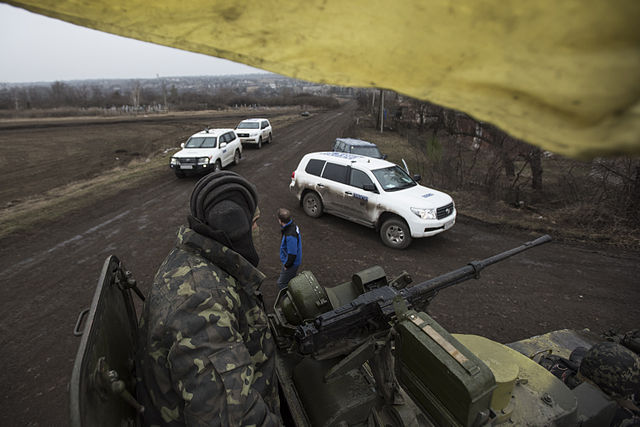Organization for Security and Co-operation in Europe
The Organization for Security and Co-operation in Europe (OSCE) is a regional security-oriented intergovernmental organization comprising member states in Europe, North America, and Asia. Its mandate includes issues such as arms control, the promotion of human rights, freedom of the press, and free and fair elections. It employs around 3,460 people, mostly in its field operations but also in its secretariat in Vienna, Austria, and its institutions. It has observer status at the United Nations.
Helmut Schmidt, Erich Honecker, Gerald Ford and Bruno Kreisky at the 1975 CSCE summit in Helsinki, Finland
OSCE SMM monitoring the movement of heavy weaponry in eastern Ukraine
A meeting of the OSCE Permanent Council at the Hofburg in Vienna, Austria
The Młodziejowski Palace in Warsaw, the seat of the ODIHR
International organization
An international organization, also known as an intergovernmental organization or an international institution, is an organization that is established by a treaty or other type of instrument governed by international law and possesses its own legal personality, such as the United Nations, the World Health Organization, International Union for Conservation of Nature, and NATO. International organizations are composed of primarily member states, but may also include other entities, such as other international organizations, firms, and nongovernmental organizations. Additionally, entities may hold observer status. An alternative definition is that an international organization is a stable set of norms and rules meant to govern the behavior of states and other actors in the international system.
The offices of the United Nations in Geneva (Switzerland), which is the city that hosts the highest number of international organizations in the world





